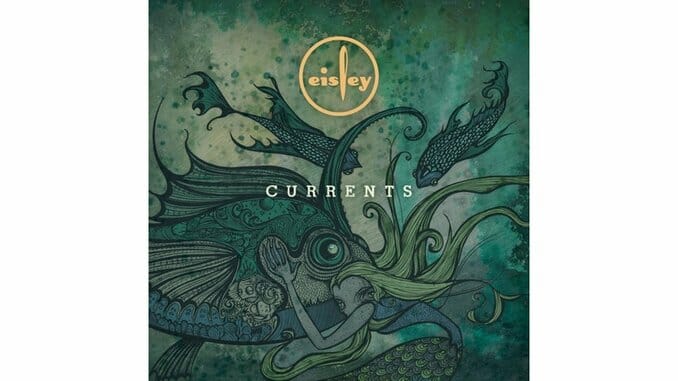Eisley: Currents

Eisley have always been a consistently satisfying band when it comes to writing loosely folk-based pop-rock songs—that is, until their last few releases, where they’ve made a conscious effort to write music that is generally more thematic and “experimental” in nature, with songs and sounds meant to create an atmosphere around their conceptual lyrics.
Although the band’s music has been getting progressively moodier and more ambitious over the course of three full-lengths and a handful of additional releases, on Currents, their most recent album, they do an excellent job of crafting a record around a specific theme, so that it moves along with the dreamy ebb and flow of the atmospheric and metaphorical currents they sing about.
Of course, a lot of Eisley’s music could be considered “dreamy” by people who use that adjective, as they have always had a penchant for utilizing sort of lofty background instruments, with lots of strings and keyboards that add an airy quality to many of their songs. There’s certainly no shortage of that on Currents, which sees Eisley using vocal harmonies and instrumental effects to drive home the album’s overarching theme(s) about the constant and treacherous current-like flow of time and the need to have an anchor to remain grounded.
The opening title track sets the general tone of the album right from the beginning, with scattered percussion sounds featuring a noticeable echo effect that produces a vague feeling of listening to the music underwater, as Stacy King’s delicate and haunting vocals begin singing, “I would part the waters if you said so/I would shift the currents if you had to row.”
-

-

-

-

-

-

-

-

-

-

-

-

-

-

-

-

-

-

-

-

-

-

-

-

-

-

-

-

-

-

-

-

-

-

-

-

-

-

-

-








































